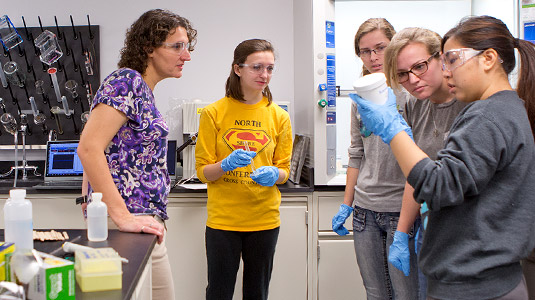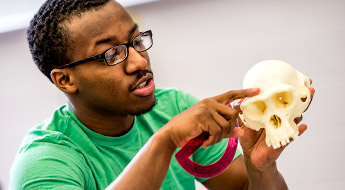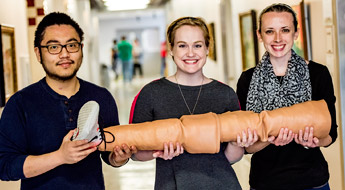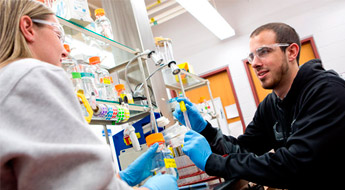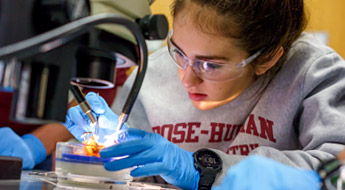At Rose-Hulman, you’ll start to hone your lab skills very early on, with hands-on research using state-of-the-art lab equipment. You’ll also gain new insights, share your work, attend conferences, and gain valuable research experience.
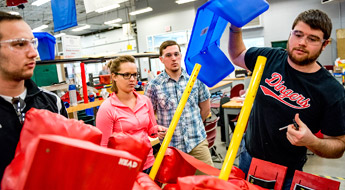
Senior Research Projects
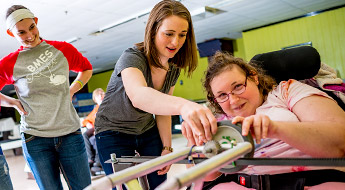
Multidisciplinary Research
As a Biology or Biomedical Engineering student, you’ll have many opportunities to collaborate with students and faculty in other fields through research and through involvement in campus organizations. One such organization is Engineers Without Borders, a multidisciplinary group where students can apply their knowledge and skills to real-world problems, often helping some of the planet’s neediest people. Another opportunity is the International Genetically Engineered Machine (iGEM) competition, which brings the best multidisciplinary teams from around the world to compete to produce biological parts, educational materials, and functional biological machines.
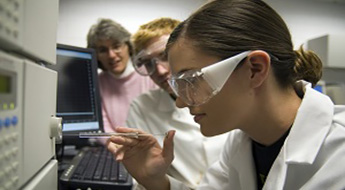
Pre-medical
Many Rose-Hulman grads have gone on to have rewarding schools as physicians. With constant advances in technology, medical schools are very interested in students with engineering and science backgrounds.
Talk with your advisor to find what courses you'll need to prepare yourself for the Medical College Admissions Test (MCAT). If medical school is in your future, we can help you get there.
Research Labs
We offer our biology and biomedical engineering students a variety of state-of-the-art labs, including facility for studying joint-replacement medical devices, a modern greenhouse, motion analysis lab, and tissue culture lab.
Majors, Minors, and Master's
We offer majors in Biology, Biomedical Engineering, and a second major in Biochemistry & Molecular Biology. We also offer a Master’s Degree in Biomedical Engineering.
Bachelor of Science in Biology
Bachelor of Science in Biomedical Engineering
 If you love engineering, the life sciences, and helping others, biomedical engineering is a wonderful career option. Many of our graduates find careers designing medical devices, conducting research, or even working as accident reconstruction engineers. It’s an exciting field combining the principles of engineering with the biological life sciences.
If you love engineering, the life sciences, and helping others, biomedical engineering is a wonderful career option. Many of our graduates find careers designing medical devices, conducting research, or even working as accident reconstruction engineers. It’s an exciting field combining the principles of engineering with the biological life sciences.
Master’s Degree in Biomedical Engineering
For graduates with an engineering degree who wish to pursue a career in health care, a Master’s Degree in Biomedical Engineering is an exciting choice. This program draws heavily on your engineering knowledge while applying that knowledge to the biological life sciences.
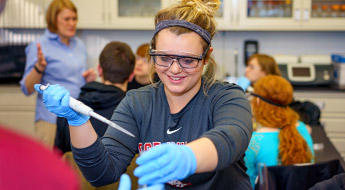
Minor in Biology, Biochemistry & Microbiology
We encourage students from any major to consider expanding their knowledge of the life sciences by completing a minor in biology or biochemistry & microbiology. The minor will expose you to entirely new career and research possibilities in an exciting and growing field.
Learn More:
We were making the first step out of the age of chemistry and physics, and into the age of biology.
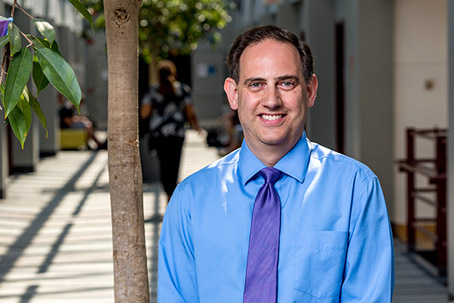
Bill Weiner
Dr. Bill Weiner is an expert in circadian rhythms, the sensory processing of neural systems and invertebrate vision. He enjoys teaching and trying to maximize each student’s potential. His efforts were recognized by the Princeton Review, being listed among the Best 300 Professors in America book. He also has been recognized among the outstanding professors on campus and spent a year helping examine how to incorporate engineering design concepts into the institute’s curriculum.
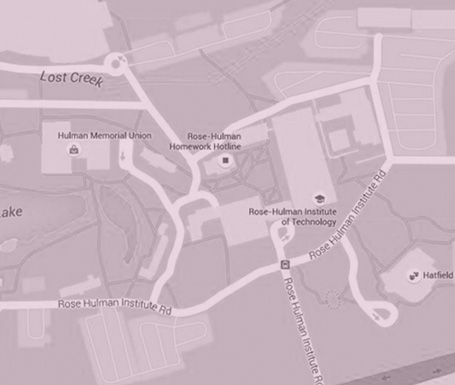
Contact Us
Department of Biology and Biomedical Engineering
Rose-Hulman Institute of Technology
5500 Wabash Avenue
Terre Haute, IN 47803
812-877-8441

